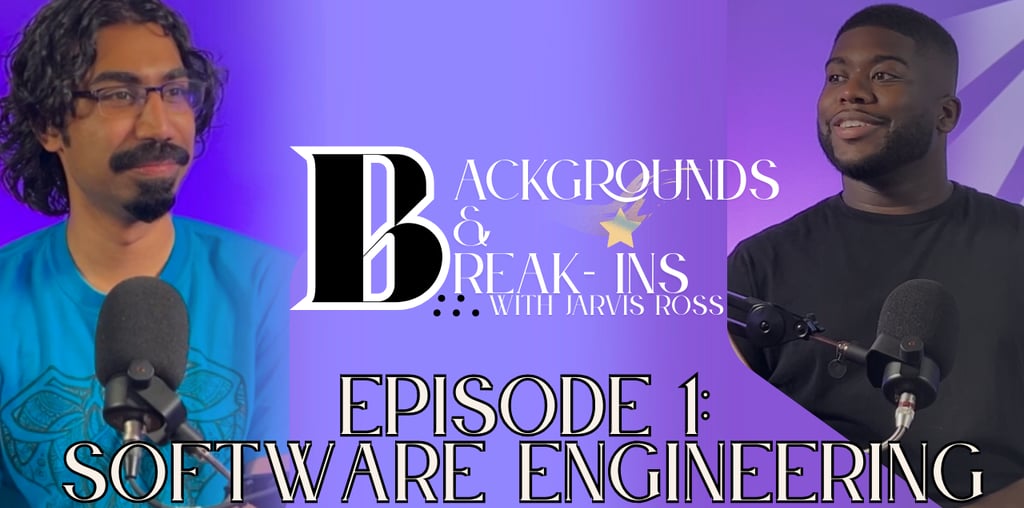Stepping into Software Engineering
From college grind to career climb: How Rohan navigated the entry-level tech space with persistence and family support.


Who is Rohan Raju?
Rohan Raju is an early-career software engineer with about three years of experience, known for his grit and adaptability. His path into tech began around his senior year of high school when he decided to pursue coding seriously. Rohan’s academic journey started at Georgia State University’s Perimeter College, where he completed an associate program before transferring to Georgia Tech—a notoriously challenging institution known for its demanding coursework. Despite initial setbacks like not being admitted out of high school, Rohan strategically took core classes first to prepare for the rigors ahead. His story reflects persistence, learning through trial and error, and the realities of navigating the saturated job market in software engineering. He was the inaugural guest on Backgrounds & Break-Ins, where he candidly discussed his career transition, job hunting struggles, and work-life balance.
Career Role Description
Rohan’s current role as a software engineer involves programming primarily in Java, with his team now transitioning into Node.js. His day-to-day work includes collaborating in a hybrid environment, managing tasks independently, and participating in team meetings to track progress. Rohan utilizes popular tools such as IntelliJ, Microsoft Teams, and Outlook to facilitate development and communication. His job requires adapting quickly to new languages and frameworks, leveraging strong programming fundamentals to understand and work across different technologies. While workload varies, he balances busy days filled with complex tasks and quieter periods with fewer assignments. Despite occasional overtime for production deployments, Rohan maintains a mostly manageable and flexible work-life balance, appreciating the hybrid setup that allows remote work.
Interview Summary
In his Backgrounds & Break-Ins interview, Rohan opened up about the challenges of breaking into software engineering. He shared the emotional ups and downs of the job hunt, including times he questioned his candidacy when faced with rejections and slim interview margins. He emphasized resilience and learning to roll with setbacks, noting that not progressing in interviews usually isn’t a personal failure but a matter of fit. Rohan also reflected on the importance of mentorship and asking questions, despite fears of seeming inexperienced. His work experience has shown him the varied realities of the tech industry—ranging from overworked, underpaid individuals to those with cushy jobs. His advice encourages cautious optimism and mental preparedness, balancing realistic expectations with hope. Finally, he offered inspiring “words of wisdom” about staying optimistic through rough days and persevering until success comes.
Pros
Broad Industry Demand: Roles exist across nearly every sector, making it easier to find opportunities aligned with your interests.
Skill-Driven Growth: With dedication, developers can quickly rise through the ranks, gaining access to higher salaries and leadership paths.
Problem-Solving Creativity: Projects often involve building from scratch, allowing space to innovate and improve systems in meaningful ways.
Cons
Job Market Saturation: Highly competitive hiring processes create narrow margins for advancing in interviews.
Workload Variability: Some days are overwhelming with multiple complex tasks, requiring extended hours.
Limited Long-Term Mentorship: Frequent team rotations make sustained mentorship relationships difficult to establish.